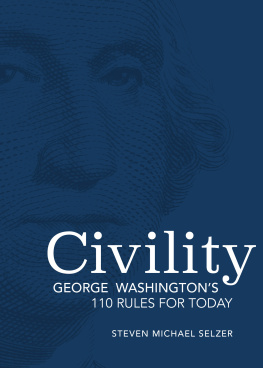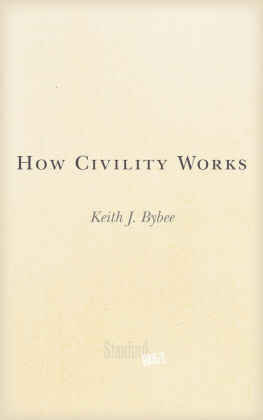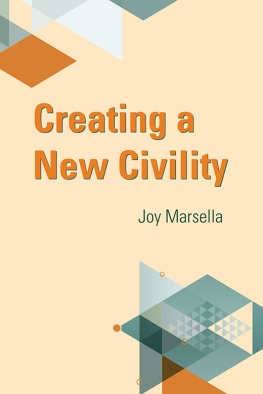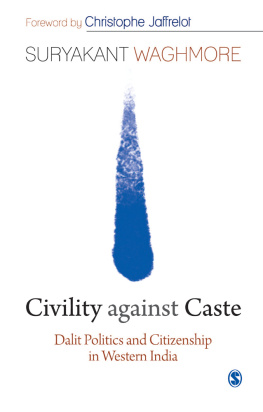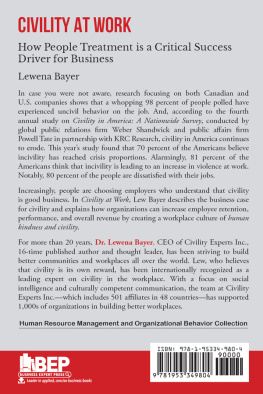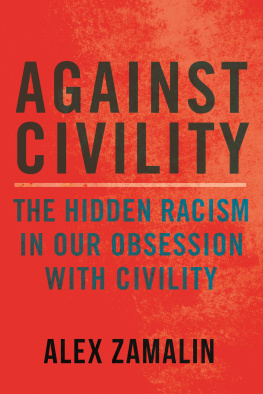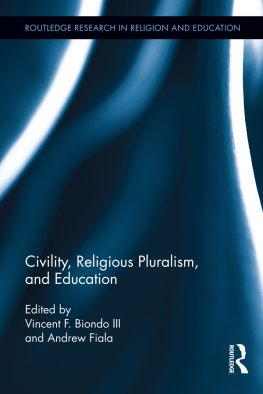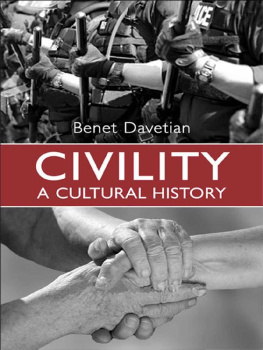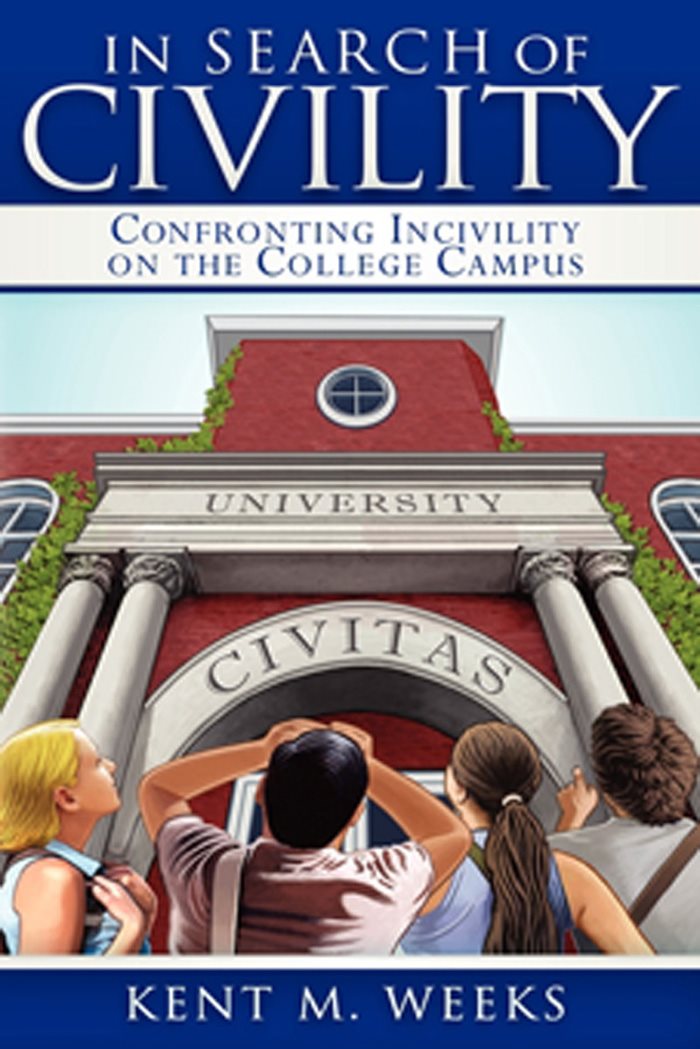IN SEARCH
OF CIVILITY:
Confronting Incivility
on the College Campus
KENT M. WEEKS, Ph.D AND J.D.

NEW YORK
IN SEARCH OF CIVILITY
Confronting Incivility on the College Campus
by KENT M. WEEKS, Ph.D AND J.D.
2011 Kent M. Weeks. All rights reserved.
No part of this publication may be reproduced or transmitted in any form or by any means, mechanical or electronic, including photocopying and recording, or by any information storage and retrieval system, without permission in writing from author or publisher (except by a reviewer, who may quote brief passages and/or show brief video clips in a review).
Disclaimer: The Publisher and the Author make no representations or warranties with respect to the accuracy or completeness of the contents of this work and specifically disclaim all warranties, including without limitation warranties of fitness for a particular purpose. No warranty may be created or extended by sales or promotional materials. The advice and strategies contained herein may not be suitable for every situation. This work is sold with the understanding that the Publisher is not engaged in rendering legal, accounting, or other professional services. If professional assistance is required, the services of a competent professional person should be sought. Neither the Publisher nor the Author shall be liable for damages arising herefrom. The fact that an organization or website is referred to in this work as a citation and/or a potential source of further information does not mean that the Author or the Publisher endorses the information the organization or website may provide or recommendations it may make. Further, readers should be aware that internet websites listed in this work may have changed or disappeared between when this work was written and when it is read.
ISBN 978-1-60037-907-9 (paperback)
Published by:
MORGAN JAMES PUBLISHING
The Entrepreneurial Publisher
5 Penn Plaza, 23rd Floor
New York City, New York 10001
(212) 655-5470 Office | Interior Design by: |
(516) 908-4496 Fax | Bonnie Bushman |
www.MorganJamesPublishing.com

In an effort to support local communities, raise awareness and funds, Morgan James Publishing donates one percent of all book sales for the life of each book to Habitat for Humanity.
Get involved today, visit
www.HelpHabitatForHumanity.org.
ACKNOWLEDGMENTS
Many people contributed to In Search of Civility. The colleges and universities with whom I work care deeply about developing a climate of civility and over the years have raised interesting questions regarding the appropriate role of colleges in nurturing a caring community on campus. My students, who lead incredibly busy lives, helped me to see the complexity of the issues through their eyes.
In addition, many others contributed in significant and specific ways. While finishing up his legal studies, my student assistant Aaron Chastain, shaped the scenarios of the four students profiled in the book, conveying issues both pointed and nuanced. Ernie Gilkes, my paralegal, contributed new ideas and analyses and provided research assistance and technical support. My children who teach undergraduate students and their spouses encouraged me not to underestimate the ability of students to do the right thing and offered some ideas about design of the cover of the book. Finally, my wife, Karen, provided editorial assistance in the preparation of this book. I am deeply grateful for their collective contributions.
TABLE OF CONTENTS
INTRODUCTION
The concept of civility manages to be both one of timeless antiquity and modern relevance. As far back as the ancient Greeks, the warriors of Homers Iliad were passionately focused on their ability to live up to the standards of their society by avoiding atea word often translated as sin, but more accurately denoting a failure to fulfill ones moral and social role. Jesuss Beatitudes focused on behaviors and attitudes that made for a peaceful, harmonious society. The Tao teaches its followers to live peaceful lives that ensure harmonious relationships with nature, with individuals, and with the Cosmos. Cultures from the West, Mid-East and East all echo this refrain: in order to have a functioning human society, members have to share some basic sense of what behavior towards others is acceptable and what is not.
Fast forward thousands of years, and note that matters havent changed. While conventions have changed along with living conditions and technology, calls for behaviors consistent with a baseline norm of civility still fill the air. Thus when President Obama repeated his appeals for civility at the National Prayer Breakfast back in February of 2010 and again at the Commencement Ceremonies for the University of Michigan in May 2010, he was simply following a long and storied tradition of human social behaviorthe instance of a figurehead calling for enforcement and practice of the social norms for interaction. Civility has once again become part of the national conversation. Citizens, politicians, students, and scholars are all now opening a new dialogue on civility and what it entails in modern culture. The many voices dont seem to agree on all the details of civil conduct, but the fact that theyre having the conversation in the first place is a start.
The foundation is set. Civility is an ancient topic with a modern interest. But the remaining question is how to keep laying the bricks on this foundation. Dialogue is good, but it is meaningless if its participants lack the tools to create a workable framework.
We hope this book will contribute to this work. The prevailing assumption is that the modern university offers the best and most effective forum for providing an education in civility. Students currently entering their college years have a high degree of awareness of problems in their world and feel obligated to contribute to solving them. In this sense, they intuit the idea of contributing to the establishment of their civitasthe community in which they live.
In the pages that follow, we try to provide practical steps necessary for changing this latent desire to form stable social norms into a workable framework for a college-aged student. The framework builds on a single value: civility is defined as living according to the Golden Rule, doing unto others as you would have them do unto you, with respect for individual differences.
The devil is in the details. Our approach is to present scenarios of four real-life studentsdrawn from collective experience, anecdotal evidence, and hard datawho encounter civility dilemmas in the many spheres of university life. They face tough questions. They want to do the right thing, but regularly applying civility values proves to be difficult. The important part, though, is that the students think about the choices they make and whether those choices are in line with civil conduct. That sort of education is what can contribute to building of a modern, inclusive civitas.
1


